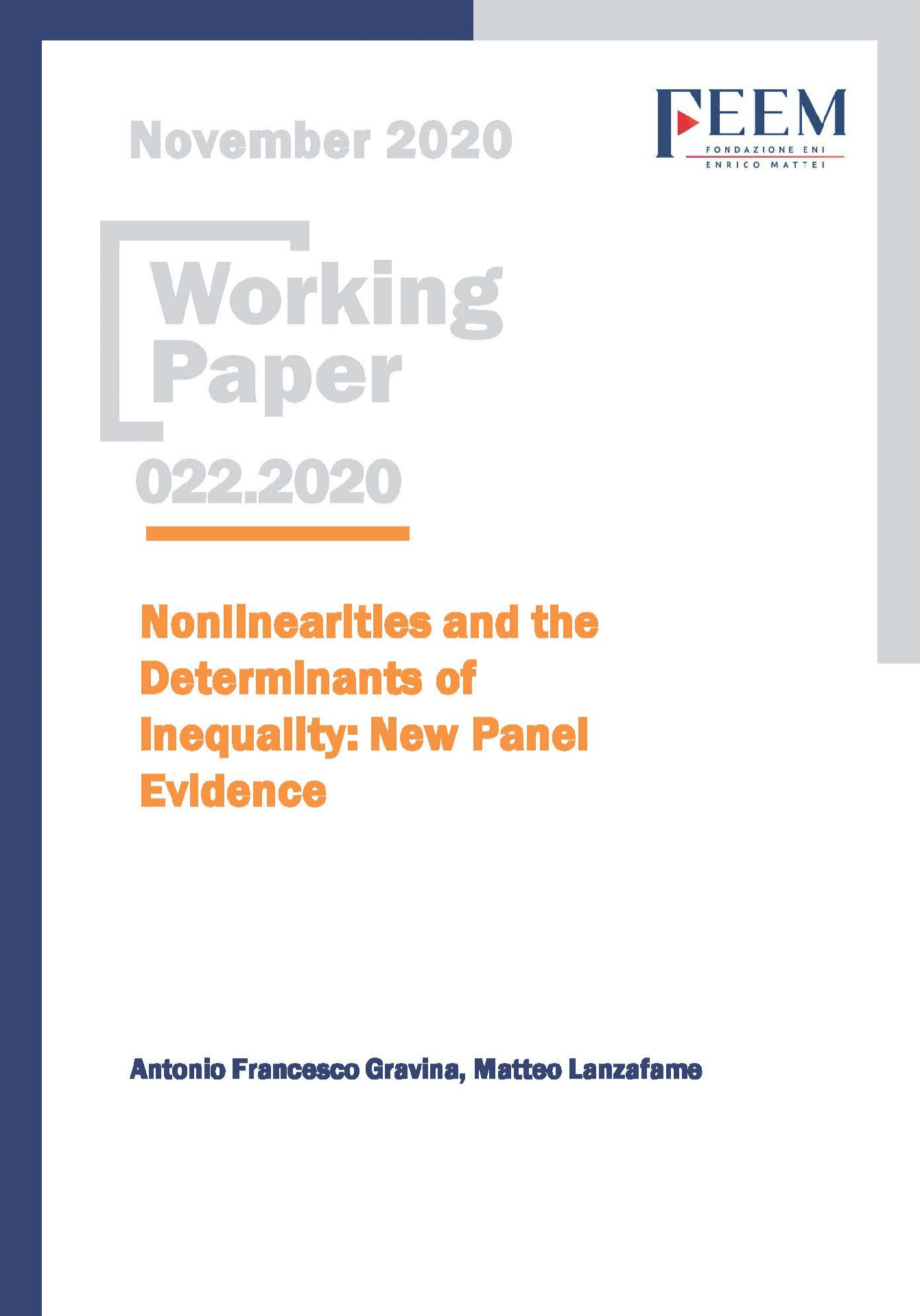Nonlinearities and the Determinants of Inequality: New Panel Evidence

17.11.2020
Antonio Francesco Gravina (University of Messina); Matteo Lanzafame (University of Messina)
C01, C33, F63, O11, O15, O33
Inequality, Globalisation, Technology, Finance, Nonlinearity, Panel data
2030 Agenda
Sergio Vergalli
Relying on data for a panel of 90 economies over 1970-2015 and System-GMM estimates, we extend the standard Kuznets-curve empirical framework to investigate how financial development, globalisation and technology affect income inequality. Our findings reveal the presence of significant nonlinearities, consistent with either U-shaped or inverted Ushaped relationships. As such, depending on whether a certain threshold value is achieved, the same determinants of income distribution can exert opposite effects in different countries. Globalisation is associated to increasing inequality in most advanced economies, but to falling disparities for the large majority of emerging economies. Further, while the effects for advanced economies are mixed, technology and financial development lead to increasing inequality for most emerging economies. Hence, particularly in countries in earlier stages of development, policymakers aiming at fostering growth via technological progress or financial development should also consider the nature of the trade-offs with inequality and how policy can improve them.
Relying on data for a panel of 90 economies over 1970-2015 and System-GMM estimates, we extend the standard Kuznets-curve empirical framework to investigate how financial development, globalisation and technology affect income inequality. Our findings reveal the presence of significant nonlinearities, consistent with either U-shaped or inverted Ushaped relationships. As such, depending on whether a certain threshold value is achieved, the same determinants of income distribution can exert opposite effects in different countries. Globalisation is associated to increasing inequality in most advanced economies, but to falling disparities for the large majority of emerging economies. Further, while the effects for advanced economies are mixed, technology and financial development lead to increasing inequality for most emerging economies. Hence, particularly in countries in earlier stages of development, policymakers aiming at fostering growth via technological progress or financial development should also consider the nature of the trade-offs with inequality and how policy can improve them.
***
Suggested citation: Gravina A. F., Lanzafame M., (2020), ‘Nonlinearties and the Determinants of Inequality: New Panel Evidence’, Nota di Lavoro 22.2020, Milano, Italy: Fondazione Eni Enrico Mattei
